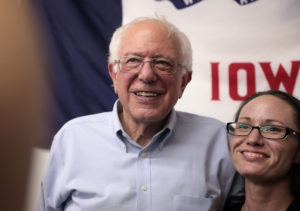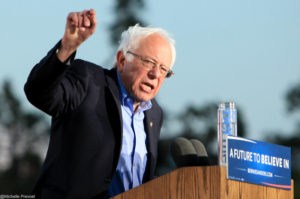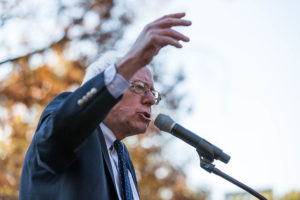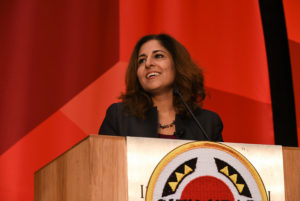An Unrepresentative Democracy
Why are ideas widely supported in most of the country so often portrayed as controversial, polarizing and divisive once they are taken up by legislatures?Why are ideas widely supported in most of the country so often portrayed as controversial, polarizing and divisive once they are taken up by legislatures? Why does the professional political class seem like a wholly separate society that does not understand the constituents it is supposed to be representing? These are the existential questions at the root of America’s political dysfunction — and a new study marshaling reams of data finally provides some concrete answers.
Conducted by the University of California’s David Broockman and University of Michigan’s Christopher Skovron, the survey of nearly 2,000 legislators from across America documents politicians’ perceptions of their constituents’ views on hot-button issues like universal health care and same-sex marriage. It then compares those perceptions with constituents’ actual views.
The juxtaposition reveals a jarring truth: Both Republican and Democratic lawmakers hugely overestimate the conservatism of the very people they are supposed to represent. In all, the report finds that “conservative politicians systematically believe their constituents are more conservative than they actually are by over 20 percentage points, while liberal politicians also typically overestimate their constituents’ conservatism by several percentage points.” Ultimately, that has resulted in a political system inherently hostile to mainstream proposals and utterly unrepresentative of public opinion.
The first obvious question is why: Why do politicians — aka people who are supposed to be professional experts in representing others — so misunderstand their own communities?
Broockman and Skovron argue that one answer has to do with the prevalence of right-leaning mythology. Citing “Richard Nixon’s pronouncement that a ‘silent majority’ of Americans backed his policies” and “Sarah Palin’s suggestion that a latent ‘real America’ supported her,” the researchers correctly note that there remains “a folk theory among conservative politicians that the American public is considerably more conservative than it seems at face value.” This theory is undoubtedly fueled by a Fox News-ified media that pushes such inaccurate fables.
That said, the persistence of fairy tales cannot explain the entire phenomenon. There is also the fact that in the age of money-dominated politics, many professional lawmakers do not come from the ranks of the commoner — instead, more and more are wealthy upper-crusters whose cloistered upbringing inside gated communities leaves them wholly unfamiliar with their constituencies.
Such isolation is then exacerbated during their time in office. Ensconced in a bubble of conservative-minded corporate lobbyists and mega-donors, they come to wrongly assume that what passes for a mainstream position in that bubble somehow represents a consensus position in the larger world.
The electoral process, of course, is supposed to be the panacea — it is supposed to pop that bubble and force a connection between the representative and the represented. However, because getting elected to office is now less about town meetings than about buying expensive television ads, even the campaign process fails to familiarize politicians with rank-and-file voters. As the study data confirm, “politicians’ perceptions of public opinion after the campaign and the election itself look identical to their perceptions prior to these events, with little evidence that their misperceptions had been corrected.”
The result is an unrepresentative democracy, which raises the second question — the one about republican democracy itself. Can it truly exist under these conditions?
In name, it most certainly can. As evidenced by the constant references to the concept in political speeches, the venerable brand is indeed alive and well.
The trouble is that a brand alone is limited. It cannot on its own sustain such a radical notion as self-governance, especially at a moment when our representatives are so increasingly ignorant of — and hostile to — public will. If such ignorance and hostility continues, republican democracy will almost certainly become just a meaningless slogan — and America will likely become far less exceptional than we should ever allow it to be.
David Sirota is the best-selling author of the books “Hostile Takeover,” “The Uprising” and “Back to Our Future.” Email him at [email protected], follow him on Twitter @davidsirota or visit his website at www.davidsirota.com.
© 2013 CREATORS.COM
Your support matters…Independent journalism is under threat and overshadowed by heavily funded mainstream media.
You can help level the playing field. Become a member.
Your tax-deductible contribution keeps us digging beneath the headlines to give you thought-provoking, investigative reporting and analysis that unearths what's really happening- without compromise.
Give today to support our courageous, independent journalists.






You need to be a supporter to comment.
There are currently no responses to this article.
Be the first to respond.